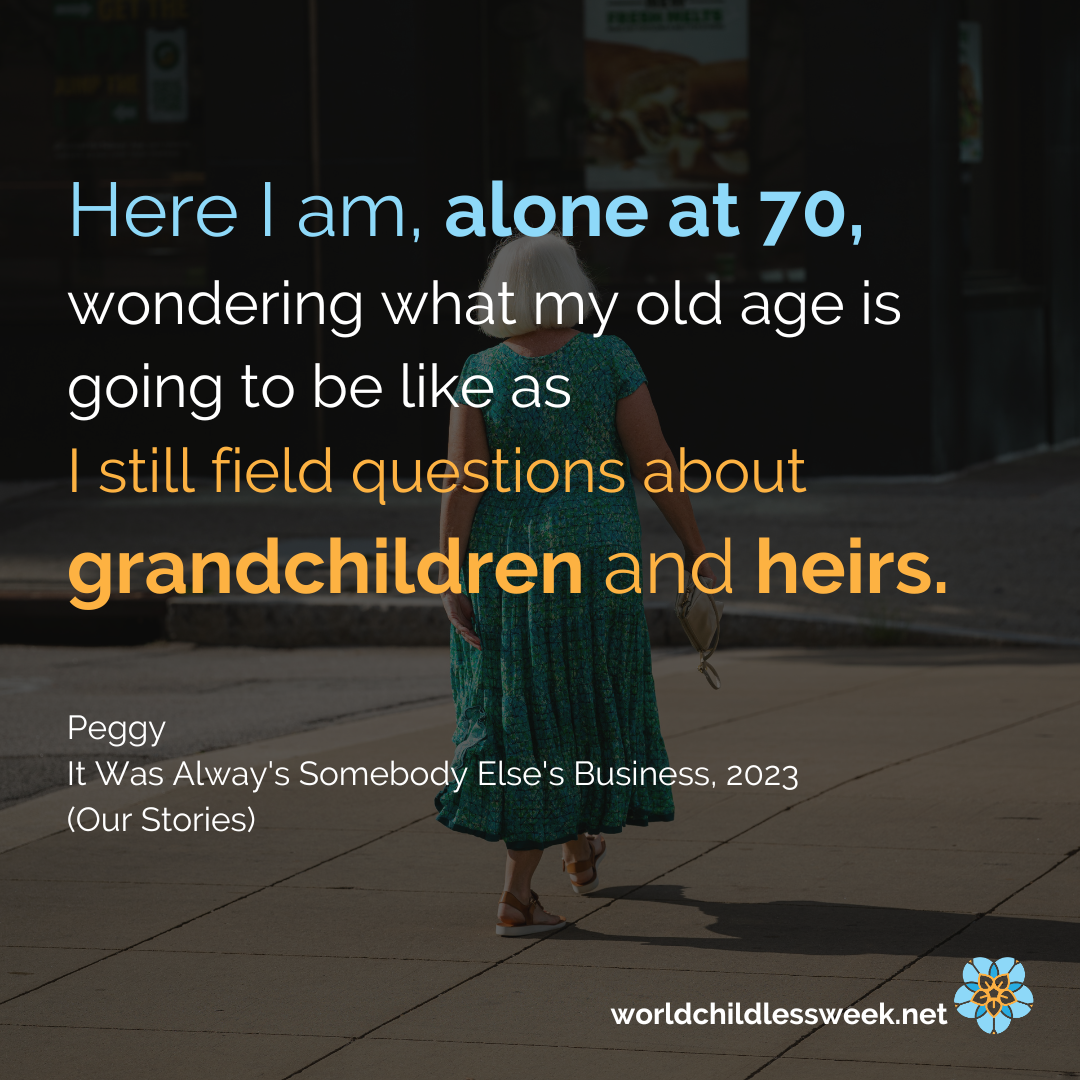Peggy
When I was 16, Mother's OBG asked to see me for an exam. He was the one who fed the DES to her, which also meant me, as there were signs of another miscarry. I was shocked by the exam - no one prepared me for it - but I was aware enough to process the doctor's news that I might never have a child.
My 2 sisters and I were in agreement that we weren't interested in carrying the legacy of our mother's dysfunction into another generation, so I tucked his news in the back of my mind.
My first marriage crashed when I refused further months of infertility treatment (husband explained that his parish council expected him to visibly support Sunday School re-population) and he decided to preach from the pulpit on this topic with out asking permission from me.
I moved and pursued a second degree in education. At the school I taught in for 25 years, the other teachers were gung-ho natalists. Several of them and a couple of principals expressed doubt that I would truly understand my students as I was not a parent myself. Because of my DES Belly, I was often asked "when I was due" and, over time, my replies became shorter and less gracious.
Here I am, alone at 70, wondering what my old age is going to be like as I still field questions about grandchildren and heirs. I've never met another woman who has lived a similar path. However, I guard my privacy because, frankly, it's no one else's business.
I asked Peggy if she would be kind enough to educate me more on DES
DES = Diethylstilbestrol, a synthetic estrogen-based hormone that was dosed daily to women threatening to miscarry in the 1940s-1960s. DES is also an estrogen-disruptor, very like BPA. Among its myriad uses, it was also used as an abortant, go figure. It left its legacy in the sons and daughters that were born. These are the heightened risks we face:
Increased risk of breast cancer
Clear cell adenocarcinoma*
Obesity*
Hirsutism*
Poly-cystic Ovary Syndrome*
Testosterone imbalance*
Infertility*
Mis-shaped reproductive tract, from uterus to ovaries* or ambiguous genitalia at birth
Greater risk of problems during pregnancy (ectopic pregnancy, miscarriage, stillbirth, preeclampsia)
Menopause at a younger age*
Endometriosis
Uterine fibroids
Depression*
Neurodevelopmental alterations*
Cardiovascular, pancreatic, and immune disorders
Diabetes*
Osteoporosis
Those with an asterisk are what I have experienced.
There are DES-granddaughters with these and more issues to face; I haven't heard of any follow-ups about the DES-greatgranddaughters. The DES-sons have been evaluated for some of the same findings.
If you see a woman with a neat waist and wider hips (pear-shaped), she's probably not a DES daughter and probably fertile. If she has a large belly (potato-shaped or apple-shaped), that's a sign of the testosterone overload and we're rejected by many who intuit that we are infertile. If she's like me, she occasionally shops in the maternity department and probably wears elastic-waisted skirts and pants.
If you see a woman with a heavy beard and moustache, there's a DES daughter. Some women have tossed their razors and epilators in frustration and let their facial hair grow out splendidly; I'm 70 but I'm not there yet, so I shave/epilate/pluck the heavy hair on my legs, belly, arms, neck, and face every few days. My head hair is thick and below my waist; never had a problem growing hair.
When I was 16, my mother's OBG (who dosed her with all that DES) called to schedule an exam for me, as mother had mentioned that I wasn't menstruating yet. He wrote a lot down for my chart but didn't say much; I figure he was documenting for lawsuits of malpractice. He started me on cycles of hormones that I took into my late 30s (including ineffective fertility drugs). I experienced months of menopause symptoms at 18. I didn't have periods so much as hormonal bleeds that would gush for 3 weeks or more, a year or 2 apart, with great pain. As my body quieted down in my 50s and 60s, my belly grew (even though I was active and athletic). And all along, since I was a very conscious 4 year old, I have dealt with issues that we now have a name for: neurodivergency.

